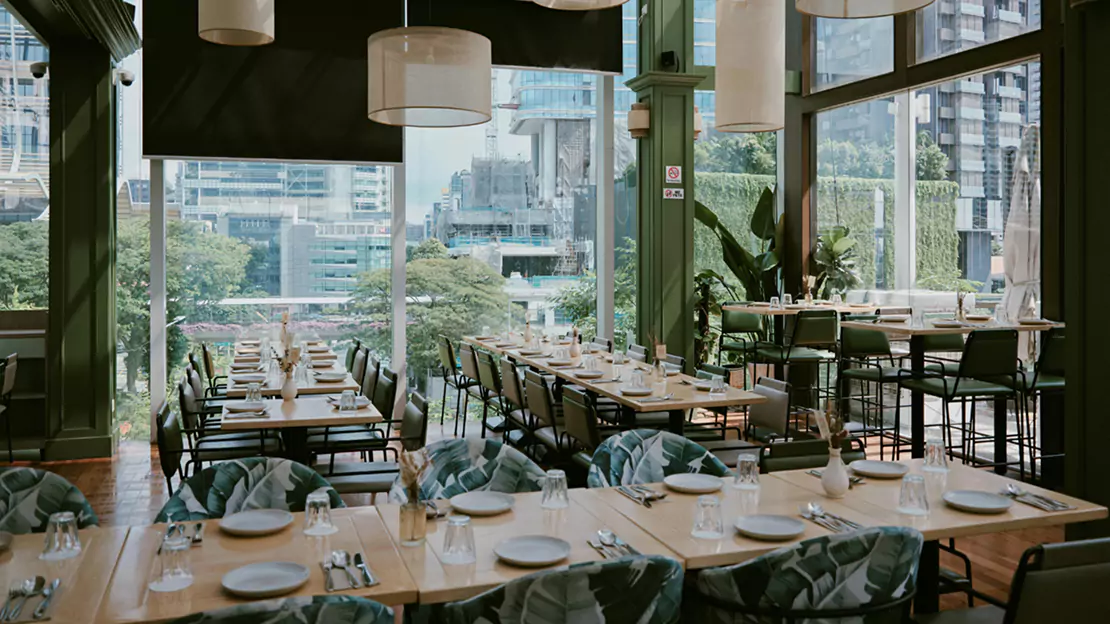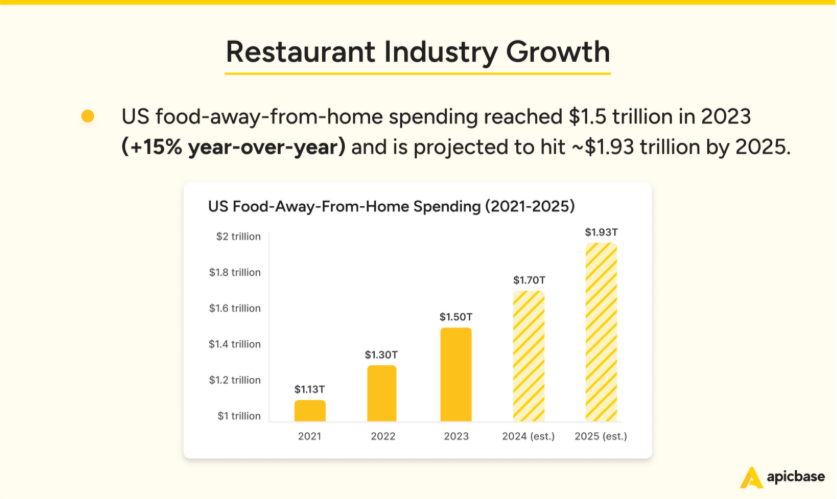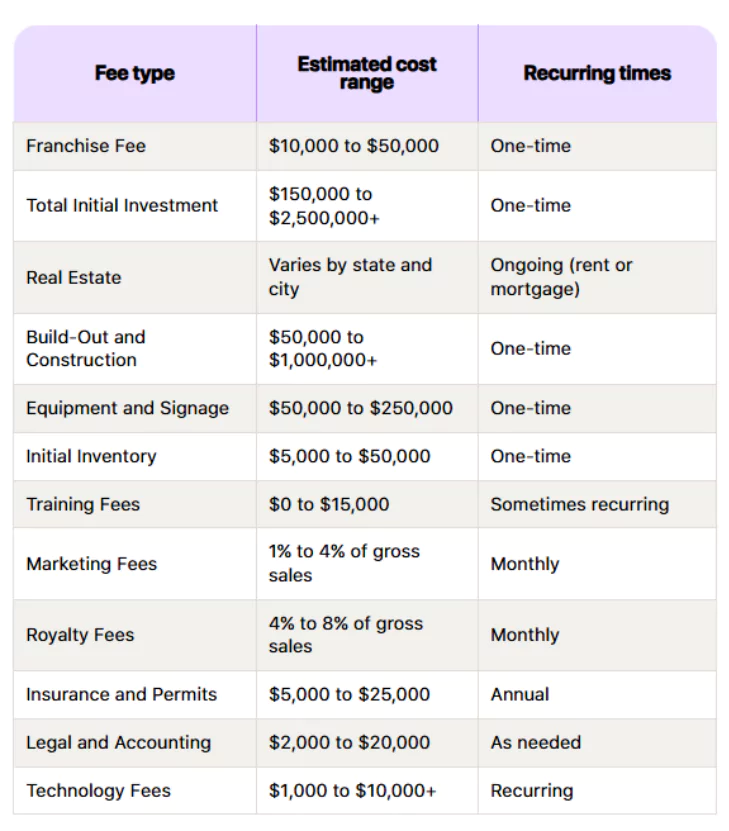Restaurant Expansion Challenges and How to Win

Authored by: Doug Gross—Partner, CPA, CGMA & Kim Wegner — Partner, CPA, CVA, CGMA | Date Published: August 27, 2025
Featured Topics:
Your restaurant has reached that pivotal moment every owner dreams of: consistent profitability, loyal customers, and the undeniable sense that you’ve outgrown your current space. The next step is expansion, but scaling from one successful location to multiple locations requires more than simply replicating your original formula. It requires careful financial planning, operational discipline, and professional guidance.
The restaurant industry is projected to reach $1.5 trillion in sales and add more than 200,000 net new jobs in 2025, creating unprecedented opportunities for prepared restaurateurs. According to current industry forecast trends, the challenges of expansion look dramatically different depending on whether you’re operating a quick-serve restaurant (QSR) focused on speed and efficiency or a full-service establishment built around experience and hospitality.

With years of experience guiding restaurant owners through the financial and operational challenges of scaling your business, MBE CPAs provides the professional support and guidance you need to turn the exciting dream of expansion into a profitable and sustainable reality.
As you consider expanding your restaurant business, it’s important to anticipate the challenges you may face and understand how to address them. This guide will walk you through the key financial and operational challenges, providing strategies to help you succeed.
What Are the Challenges of Expanding a Restaurant?
Before a new location opens its doors, the most critical work takes place on paper. Accurate financial projections form the bedrock of a successful expansion, providing a clear roadmap through the exciting, yet challenging, journey of growth.
Creating a realistic budget means acknowledging that your second location won’t be an overnight triumph. Instead, it’ll likely require an extended period to reach full profitability.
By carefully forecasting revenues, expenses, and cash flow, you can prepare for the common hurdles and secure a stronger financial future for your multi-location enterprise.
How Much Does It Cost to Start a Quick-Service Restaurant Franchise?
To start a quick-service restaurant (QSR) franchise, you’ll need to understand your funding options. While some franchises cost less than $500,000, your capital strategy will need to be adjusted based on the specific expansion approach you choose. Exploring these funding options is a crucial first step.
Here are some common ways to finance your franchise:
- Traditional bank loans work best with strong financial statements and proven cash flow.
- SBA loans provide favorable terms for qualified restaurant operators.
- Equipment financing spreads costs for kitchen equipment and technology systems.
- Investor partnerships may be necessary for larger full-service expansions.
Achieving your goals depends on having comprehensive financial statements that demonstrate your readiness for expansion and operational competence.

How Do You Maintain Quality and Consistency When Expanding a Restaurant to Multiple Locations?
Expanding operations can strain the very foundation of your business: the standards and consistency that built your brand. As you add locations, you face the significant challenge of replicating the unique experience your guests have come to expect, whether it’s the speed of a QSR or the ambiance of a full-service restaurant.
This is where standardized processes become non-negotiable. Without clear procedures for everything from food preparation to customer service, you risk diluted brand identity and inconsistent guest experiences.
Supply chain management, multi-location staffing, and standardized inventory systems are vital for preserving your brand’s quality standards. These same areas frequently become major stumbling blocks for owners who haven’t prepared adequately for expansion.
How Can Integrated Technology Help Restaurants Improve Performance?
Technology brings all the pieces together. Instead of patchwork solutions as you build your company, set up unified systems for POS, accounting, and restaurant reporting across every site. Not only does this provide real-time insight for you and your management team, but regularly benchmarking restaurants in your segment can highlight opportunities and threats before they impact your bottom line.
What Costs Should You Plan for When Expanding a QSR Franchise?
QSR franchises offer rapid expansion opportunities in the food service industry, with spending projected to reach $323.7 billion by 2025. This path, however, requires a clear understanding of the financial commitment involved. Beyond the initial franchise fees, which can range from $25,000 to over $100,000 per location, owners must also account for ongoing royalty payments and marketing fund contributions.
Expanding across state lines introduces further complications with multi-state tax implications, making it vital to incorporate all these recurring costs into your financial projections from the start to avoid profitability surprises.
What Processes Keep Service Quality High During QSR Growth?
QSR expansion often happens quickly, requiring robust systems:
- Standardized training programs enable rapid, consistent staff onboarding.
- Supply chain relationships support growth without service disruption.
- Quality control procedures are implemented across locations and staff levels.
- Financial reporting systems handle increased transaction volumes.
Rapid QSR expansion relies on these systems to maintain consistency and high standard across all locations. Without them, a sudden increase in business can quickly lead to operational chaos, inconsistent service, and a damaged brand reputation.
How Does Location Choice Impact QSR Profitability?
Prime positioning drives QSR profitability more than most other factors:
- Traffic pattern analysis identifies high-visibility and high-traffic locations.
- Demographic studies match your target customer base.
- Competition analysis helps you understand market saturation levels.
- Financial modeling accounts for premium location costs.
While prime locations demand higher rents and build-out costs, they typically generate sales volumes that justify the investment.
How Can Digital Ordering Improve QSR Operations?
Staying ahead of food service industry trends requires understanding how digital ordering continues to reshape QSR operations. The right technology can help you simplify processes, improve accuracy, and increase customer satisfaction.
- Mobile ordering platforms integrate seamlessly with existing POS systems.
- Delivery app partnerships manage associated fees (typically 15-30% of order value).
- Kitchen display systems improve order accuracy and speed.
- Customer relationship management tools drive repeat business and improve restaurant customer service.
How Can Full-Service Restaurants Expand While Preserving Consistency?
Maintaining Brand Identity
For full-service restaurants, adding new locations is about far more than just adding seats. Guests expect a consistent and memorable experience, and it’s your responsibility to deliver it, regardless of the number of locations you have. Brand standards, leadership development, and gathering guest feedback become cornerstones of keeping that unique experience alive with each new opening.
Coordinating Your Staff
When your staff increases, the challenges of labor and scheduling become more significant. Payroll systems must be robust enough to manage tips, different wage rates, and sometimes union requirements. Payroll Solutions offers simplified processing, automated compliance, and real-time reporting to help you manage your growing team with ease. Investing in tools that foster clear communication and seamless scheduling helps maintain high morale and consistent service standards.
Keeping Inventory in Check
Running a restaurant with an extensive menu presents distinct inventory challenges. Without proper systems, food costs can spiral out of control, waste can accumulate, and profitability can suffer. Here’s how effective inventory management helps:
- Waste tracking systems identify and minimize spoilage.
- Portion control procedures maintain consistency and control costs.
- Supplier management balances quality, cost, and reliability.
- Menu engineering increases profitability across your entire offering.
Financing Larger Spaces
Opening a full-service restaurant demands considerable capital before the first customer ever walks through the door. Unlike quick-serve concepts, these establishments face higher build-out costs, specialized equipment needs and extended pre-revenue periods that require careful financial planning. Key investment areas include:
- Construction financing for extensive kitchen and dining room renovations.
- Equipment financing for specialized kitchen equipment and dining room furniture.
- Working capital for extended ramp-up periods.
- Detailed financial projections accounting for higher costs and longer payback periods.
How MBE CPAs Supports Your Expansion Journey
Growing your restaurant requires financial know-how designed for expansion. At MBE CPAs, we combine our years of restaurant experience with specialized services to guide your growth. We help with financial planning, scalable accounting systems, and tax strategies like WOTC credits.
With Doug’s operational background and Kim’s franchise knowledge working with brands like Culver’s and Pizza Ranch, we provide practical solutions for multi-location challenges. We handle the numbers so you can focus on operations.

Our Expansion Support Services
Whether you’re optimizing a single location or managing a multi-unit expansion, our team provides:
- Financial Planning
We analyze new markets and model costs to help you make smart expansion choices based on numbers that make sense. - Accounting Systems That Grow With You
Our systems handle bookkeeping, inventory tracking, and FICA tip credits to keep profits strong as you add locations. - Tax Savings for Growth
We help you use WOTC programs, opportunity zones, and property benefits to keep more money for reinvestment.
Let us help bring your growth plans to life. Contact MBE CPAs today for financial support designed for your restaurant business.
